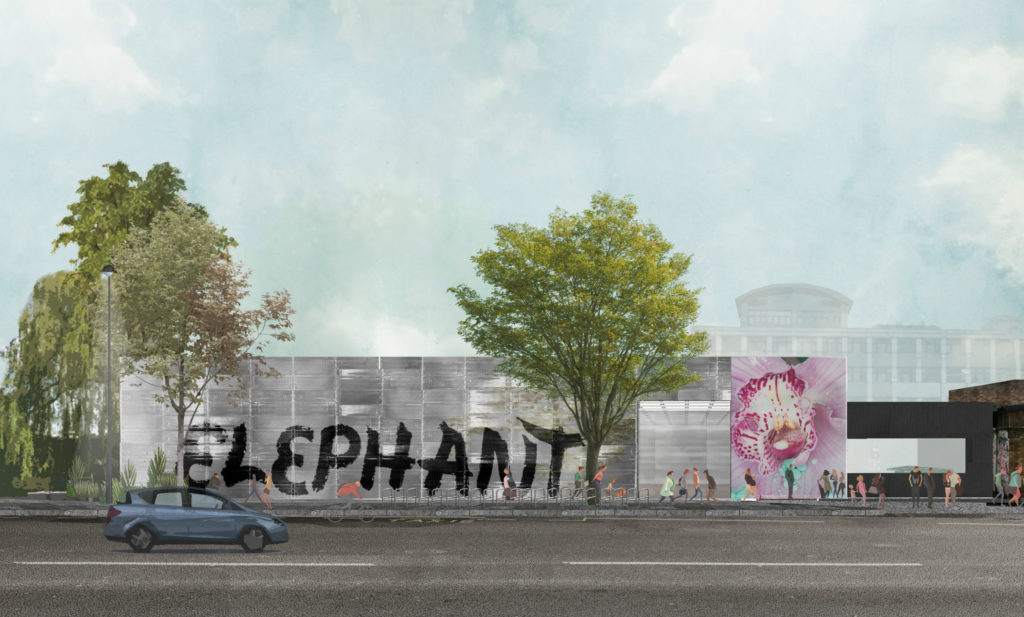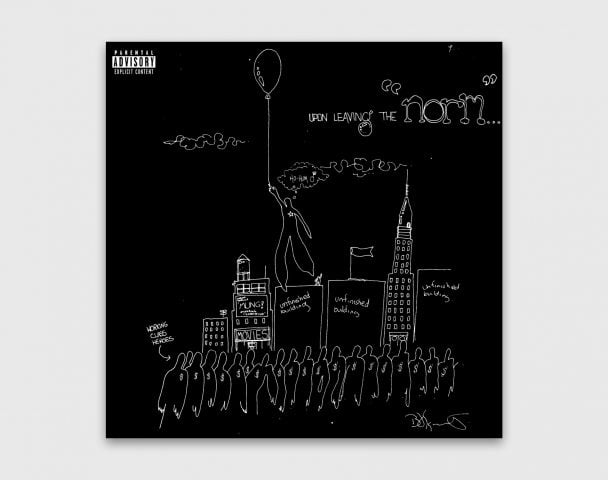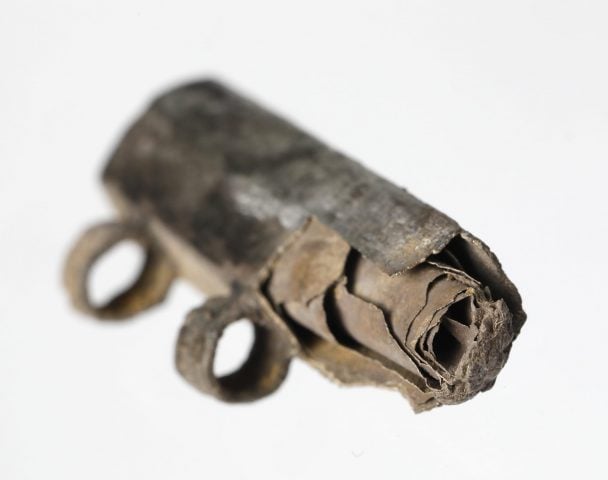The beloved magazine Interview might be closing in New York, but in London, another publication, Elephant, is expanding.
Swimming against the prevailing tide, the print and online magazine is investing in bricks and mortar: It plans to open a project space and shop in west London’s White City neighborhood later this year. Due to debut just in time for Frieze London this fall, Elephant West promises to be a quirky venue and a possible magnet for millennials.
“We hope everyone will come to Elephant West,” Robert Shore, the publication’s creative director, tells artnet News. “But we’re about emerging artists and the new and the next generally, so perhaps that does weight us in that direction.”
The new space will take root in a converted gas station on the busy Wood Lane highway opposite what used to be the BBC Television Centre and is now an upmarket housing and hotel development. The pumps and the oil tanks below grade will stay put, Shore says, though he stresses “it’s all been safely decommissioned.” Architects Liddicoat & Goldhill, a young practice based in Margate, are converting the gas station into an “international-standard art project space with ancillary food and beverage area,” according to the practice’s website.
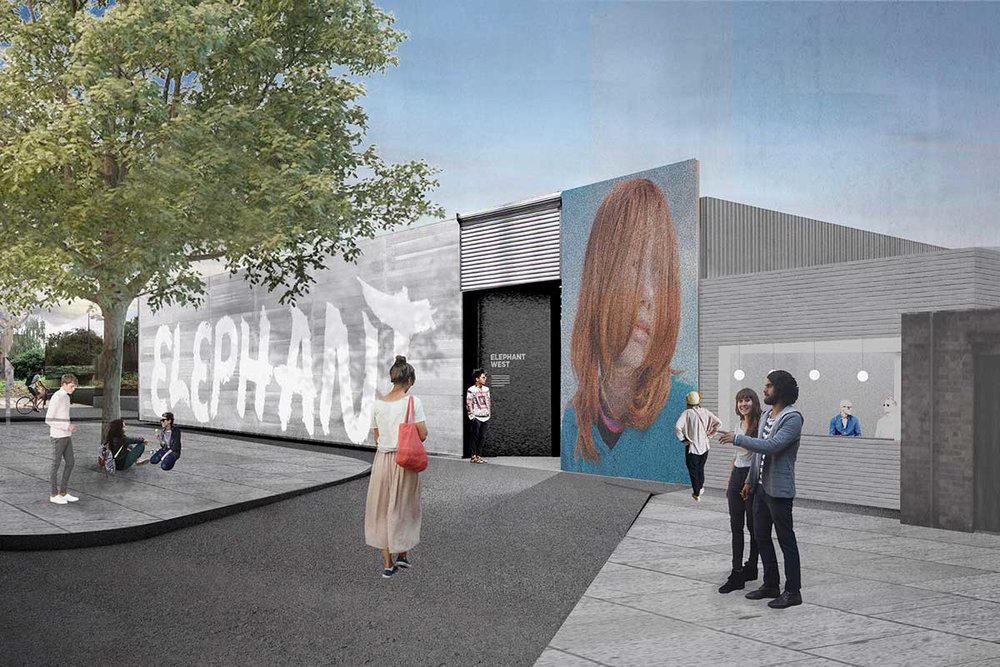
Early rendering of the Elephant West project space, courtesy of Liddicoat & Goldhill.
Shore says that the notion of a magazine opening a project space is a “very utopian idea” and a lot of the thinking about the program is “off-the-cuff.” How exactly the space will look and the design of its urban garden are also a work in progress. The plan is to focus the program on showcasing emerging artists, some of whom are based in west London, and to capitalize on the growing experience economy.
Rather than conventional exhibitions, Elephant plans to commission artists to create large-scale installations that can provide a draw in and of themselves as well as a backdrop for dance, talks, screenings, and comedy. “There will be a lot of collaborations,” Shore says. Many of the events and talks will also be livestreamed to reach a global audience.
While the space—including the urban garden, shop, and cafe—will be free to enter, some events will be ticketed. Elephant West will have to “pay for itself,” Shore notes, acknowledging the economics will pose a challenge.
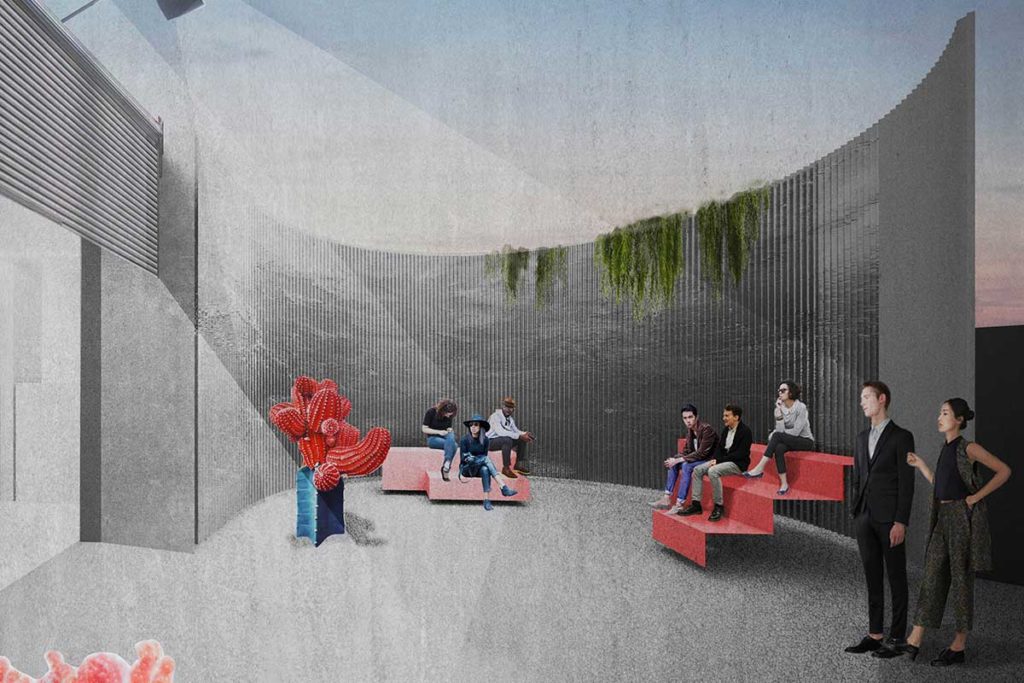
Early rendering of the Elephant West project space, courtesy of Liddicoat & Goldhill.
The recent redesign of Elephant’s quarterly publication and website comes after the title’s acquisition last year by Colart, the Swedish-owned, London-based art material supplier. The company acquired a 75 percent stake in the magazine of visual culture, which launched in 2009.
As part of the transition, Colart closed its own art space, Griffin Gallery, which was housed in its west London office, on May 25. Its curator, Becca Pelly-Fry, will now helm the program at Elephant West, which will offer stronger curb appeal and a clearer identity than its predecessor.
The publication is also taking over the Griffin Art Prize for recent art-school graduates, which has been rechristened with the prefix “Elephant x.” Last year’s winner, Anna Liber Lewis, won a £5,000 prize, studio rent up to £2,000, mentoring, art supplies, and an exhibition at the company’s gallery.
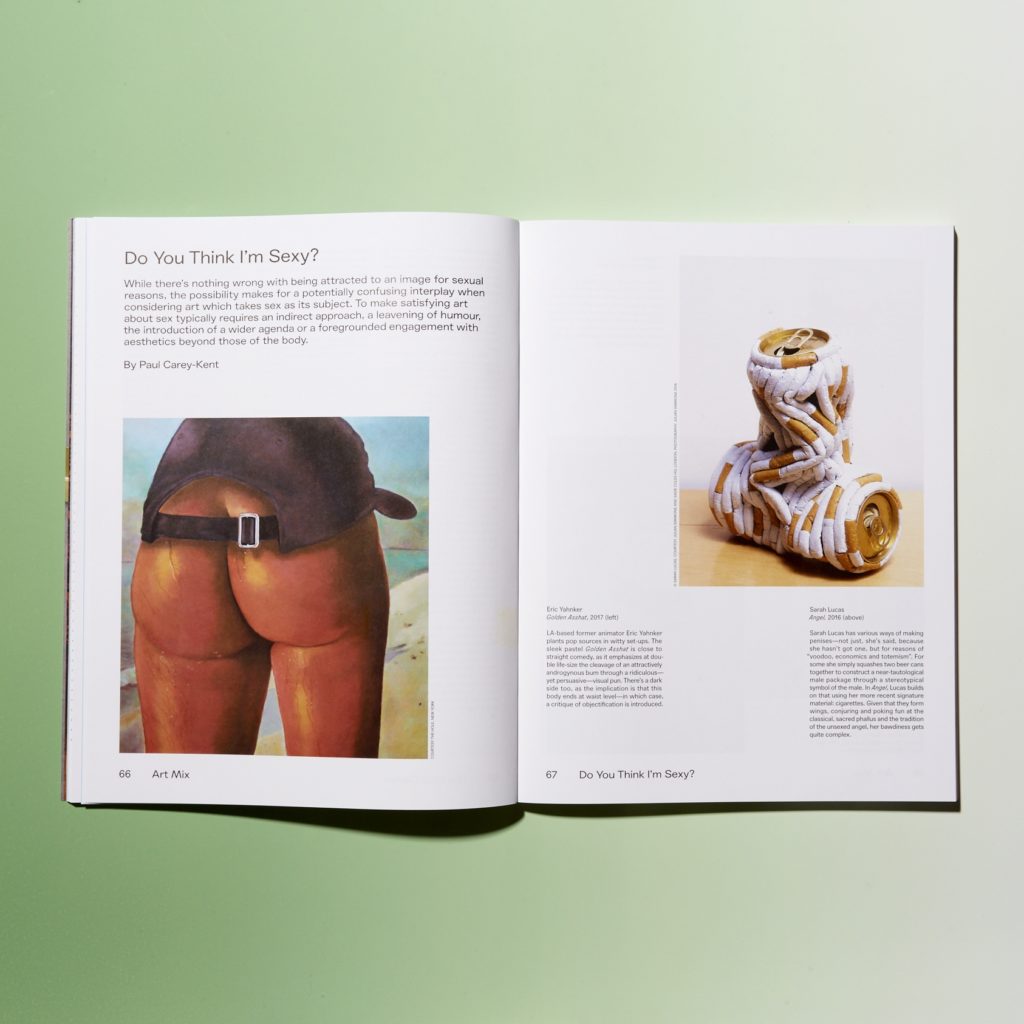
Spread from Elephant magazine’s “Art of Sex” issue.
While the gas station is undergoing its radical makeover into a full-fledged art center, Elephant is organizing pop-up events nearby. The first such event, (De)Figured, a sculpture and performance piece by the artist Nathaniel Rackowe and choreographer Angela Woodhouse, was held up the road last Friday, June 1, in what’s used to be the BBC Media Village, rebranded White City Place.
Elephant’s name was coined at the eleventh hour, just before the first edition headed to the printers in 2009. The fact that the team was unable to decide on a title for the publication, Shore recalls, became the proverbial elephant in the room. Although the phrase “in the room” made it sound like an interiors magazine, the name “Elephant” stuck.
“It’s playful and a bit surreal,” he says. Come Frieze Week in October, Elephant will also become a destination. But Shore hastened to note that it would not be following in the footsteps of another London publication-turned-brand, Frieze: “We are not going to launch an art fair,” he says.
